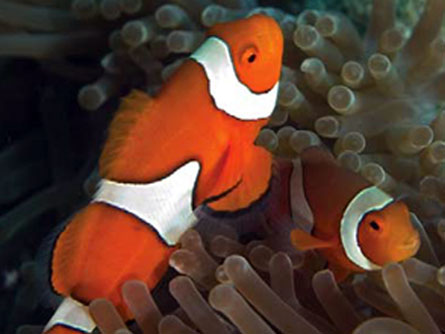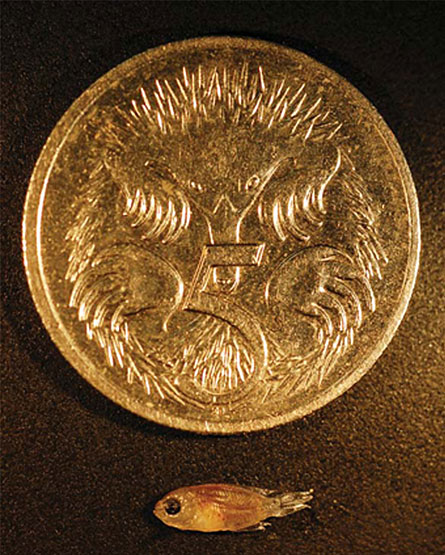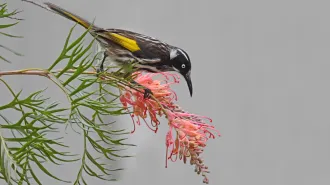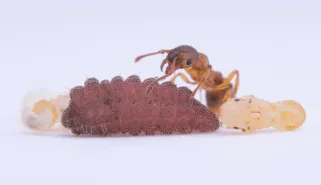Nemo might get lost again as acidifying seawater upsets the way young fish smell their way to a home, according to a new study.


A little like the animated movie-star clown fish, Nemo’s real-life counterparts go out to sea upon hatching and some 12 days later must find their way back to a reef to settle down in an anemone home. No large-personality pals with celebrity voices advise them, so real fish larvae seem to rely on scents in the water and possibly sounds from reefs when picking a locale.
In new lab experiments, though, orange clown fish larvae didn’t respond normally to scent when researchers reared them in seawater pushed closer to the acidic side of the scale, says Philip Munday of James Cook University in Townsville, Australia. Ocean chemists predict that the current increase in atmospheric carbon dioxide from human activity is lowering the pH.
In conditions projected for the end of the century, clown fish larvae might have trouble picking out scents in the water and finding the right habitats, he and his colleagues report online February 2 in Proceedings of the National Academy of Sciences.
Other marine creatures follow scents and may also face the risk of disorientation with changing ocean chemistry, Munday says. “This is something we should at least be thinking about,” he says.
Plain seawater today at his lab averages around 8.15 on the pH scale, says Munday, so it isn’t technically acidic (below pH 7 on a scale that goes to 14). Nor is global seawater projected to turn literally acid in the foreseeable future. Yet biologists in recent years have said that relatively small shifts in pH can change life considerably for ocean creatures.
The seas have picked up around a third of the human-made carbon dioxide released into the air since the industrial revolution began. And ocean water worldwide has dipped by about 0.1 on the pH scale, according to studies cited by Munday’s team. Estimates push the pH down another 0.3 to 0.4 units by 2100 if atmospheric carbon dioxide concentrations reach 1,000 parts per million. That could happen in one of the business-as-usual scenarios for human activity.
The new research is “the kind of study we need,” says fish ecologist Steve Simpson of the University of Bristol in England.
To check effects of changing pH, Munday’s lab worked with colleagues from Moscow and Oslo to raise larval clown fish in tanks of seawater lowered to either pH 7.8 or 7.6.
When raised at 7.8, predicted for the year 2100, clown fish larvae grew what looked like normal sensing organs. And the little fish still had relatively normal attractions to the scents of anemones or adult clown fish that were not their parents
Yet these larvae reversed some preferences, liking the pungent oils from Melaleuca swamp trees, which they normally avoid. Also, the larvae preferred their parents’ scents to plain seawater. The normal distaste for parental scent may play a role in avoiding inbreeding, Munday suggests.
When raised in 7.6 pH seawater, projected for around 2200, clown fish didn’t show any scent-following behavior.
This work fits with other research suggesting fish troubles in a lower-pH ocean, says Simpson. Studies have suggested reduced growth, and unfortunately, changes in formation of fish ear bones, or otoliths. So Nemo may have trouble hearing his new home as well as smelling it.






